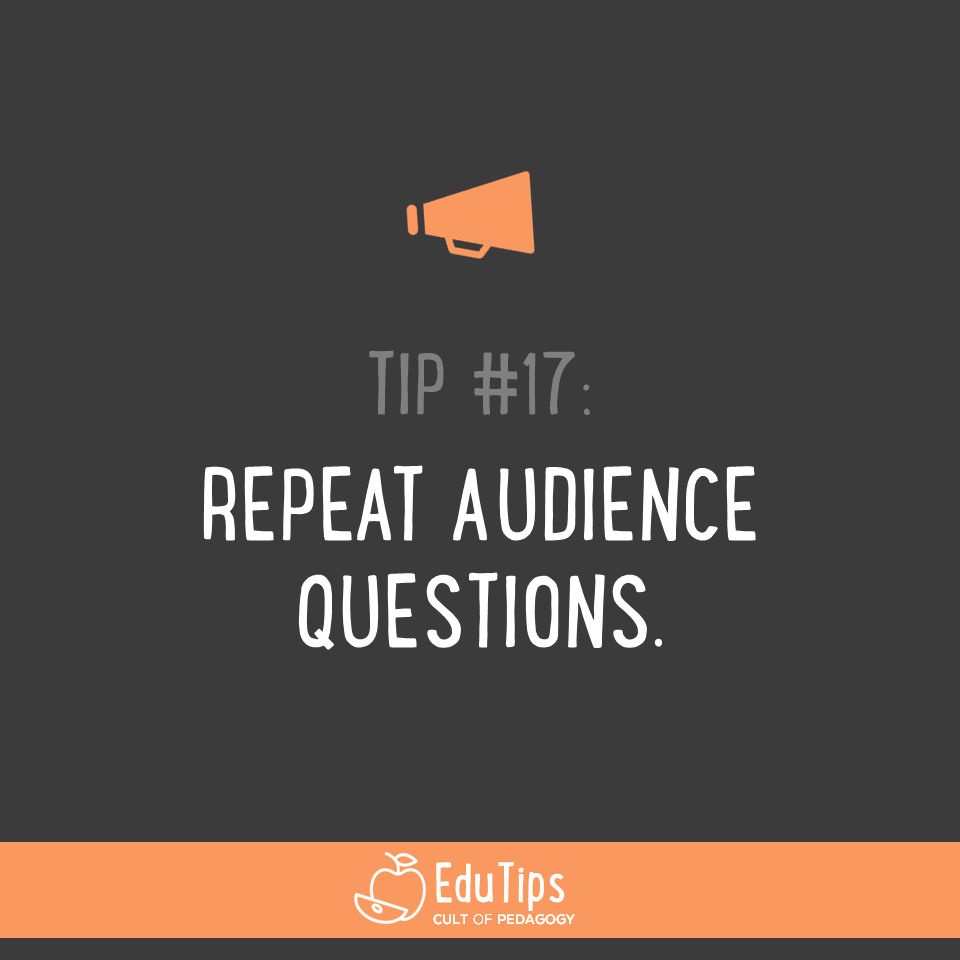Sponsored by CommonLit.

When you are presenting to any kind of an audience, whether it’s a very small one in a classroom, or a large one in a lecture hall or auditorium, and you allow time for students or audience members to ask questions, make it a regular practice to repeat the questions out loud before you answer them.
Doing this accomplishes two things. First, it ensures that everyone in the room actually hears the question. You are the one who is ideally positioned for everyone to hear you — you’re likely facing the audience, in a place where everyone can see your face and read your lips, and you might even be using a microphone. By contrast, the audience member is more likely to be sitting in some corner of the room, facing in the same direction as the audience, speaking in a voice that’s not nearly as bold and confident as yours, so it’s very possible that not everyone can hear their question, especially if you have people in the room who are hearing impaired. Repeating the question before you respond to it gets everyone on the same page about what exactly was asked.
The second reason to put this into practice is that it gives you an opportunity to make sure you understand the question being asked. There’s a chance you either misunderstood the wording that the person used or that they phrased it in a way that wasn’t quite what they meant. By repeating the question back to them — or paraphrasing it, then saying something like, “Do I understand your question correctly?” — you give the person a chance to either affirm your understanding or rephrase their question to clarify it. Either way, it’s a really respectful move on your part and it saves a lot of time that could potentially be wasted by you spending five minutes answering the wrong question.
See all EduTips here.
